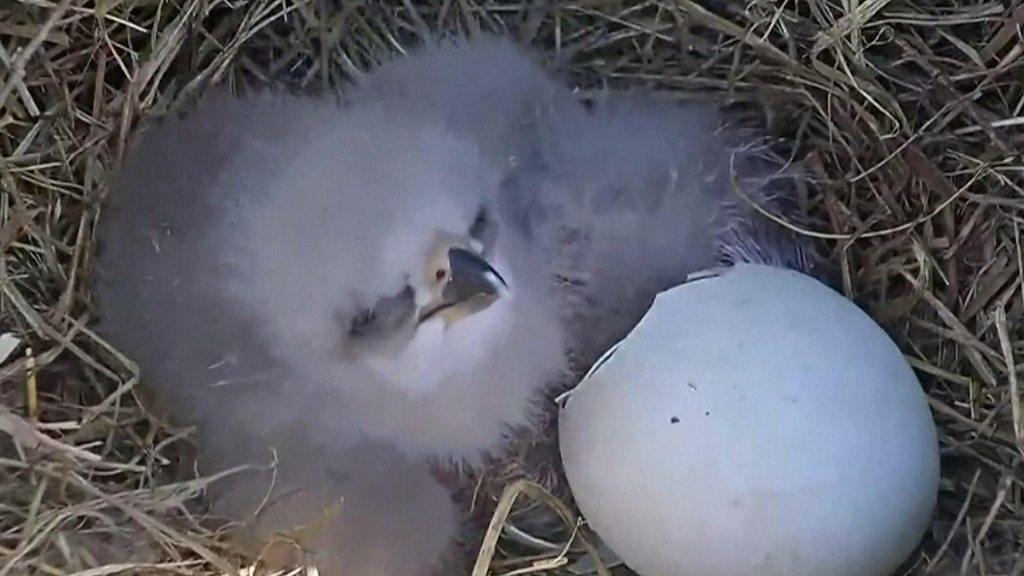White-tailed eagles to be reintroduced on Isle of Wight
- Published
- comments
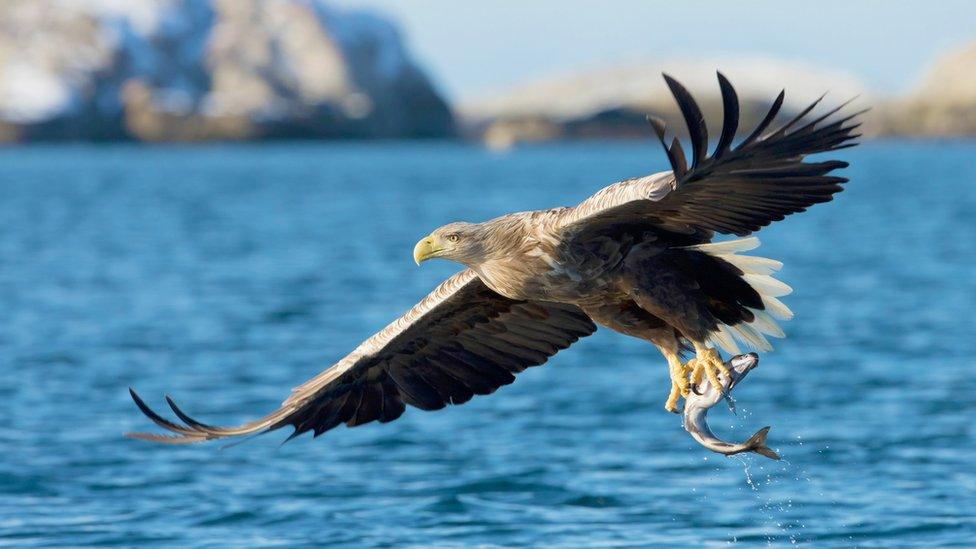
The UK's largest bird of prey is being reintroduced to the south coast of England.
There have been no white-tailed eagles in England, where they are believed to be extinct, since they were wiped out many years ago.
But now, a five-year introduction programme by the Roy Dennis Wildlife Foundation on the Isle of Wight hopes to bring them back.
Tim Mackrell, Ornithologist with the Roy Dennis Wildlife Foundation, told Newsround:
"These are incredible birds, which can measure as much as 8 feet from one tip of their wings to the others. Over 200 years ago if you lived in this part of the UK you would have seen them regularly flying in the skies above you. To have the chance to bring them back again to their home is really special."
The Isle of Wight has been chosen because it has lots of potential nesting sites and is a good location for the birds to live. The birds could also spread easily from here to other areas in the south of England if the programme proves to be successful.
There has been a similar programme undertaken in Scotland where there are now more than 130 breeding pairs. England's new arrivals are not expected to start breeding until 2024, though.
How will the reintroduction take place?
Six to eight birds will be brought from Scotland to the Isle of Wight in late June this year.
They will then be kept in a quiet, secret location for about a month before being released into the wild.
In their first months, the young eagles will be provided with food and they will also be closely monitored using special tracking devices.
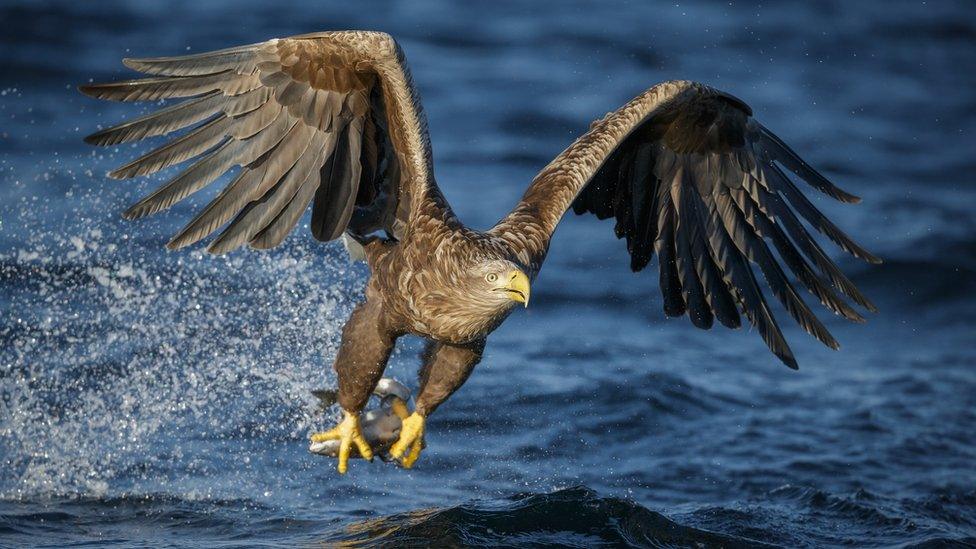
They are the UK's largest bird of prey, with an enormous wing span of 2.5 metres
Are there other benefits?
It is hoped the reintroduction will bring more money to the island.
The foundation's website explains: "In Scotland, eagle tourism is extremely popular and recent reports have shown white-tailed eagles generate up to £5 million to the economy of the Isle of Mull each year and £2.4 million to the Isle of Skye."
Is everyone happy?
While the majority of people on the Isle of Wight support the programme, not everyone is happy about the scheme.
Some say the birds could prey on livestock, like lambs.
But Natural England's director of operations James Diamond said there was "no evidence" of problems where the eagles live alongside sheep farming in Europe.
- Published19 February 2019
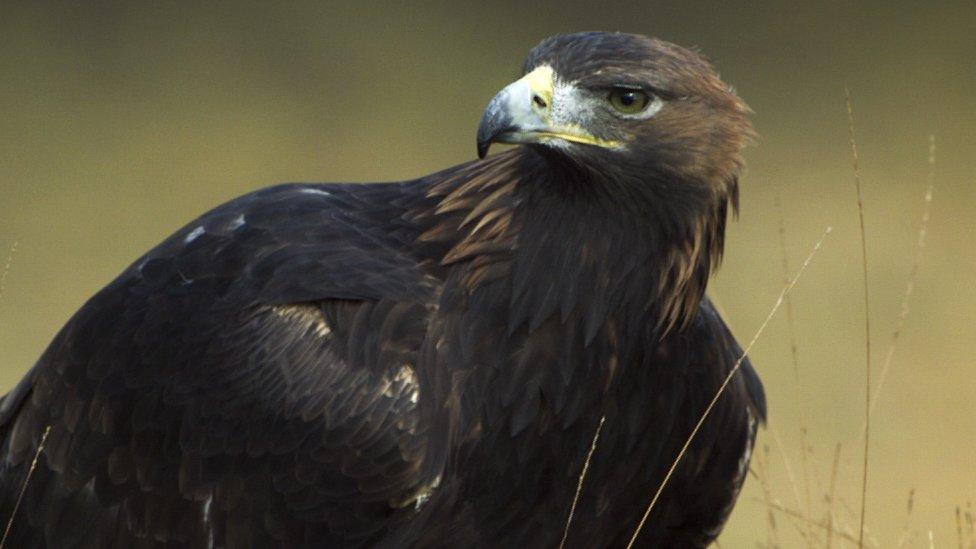
- Published2 February 2016
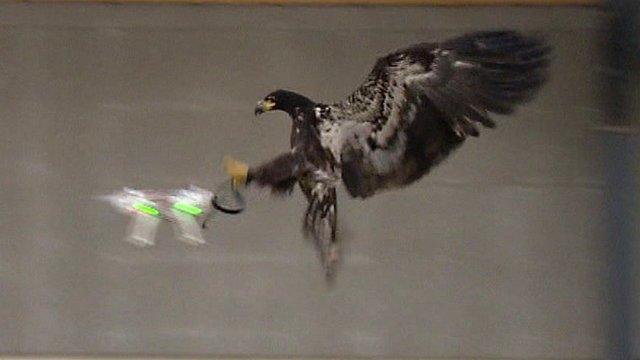
- Published29 December 2017
